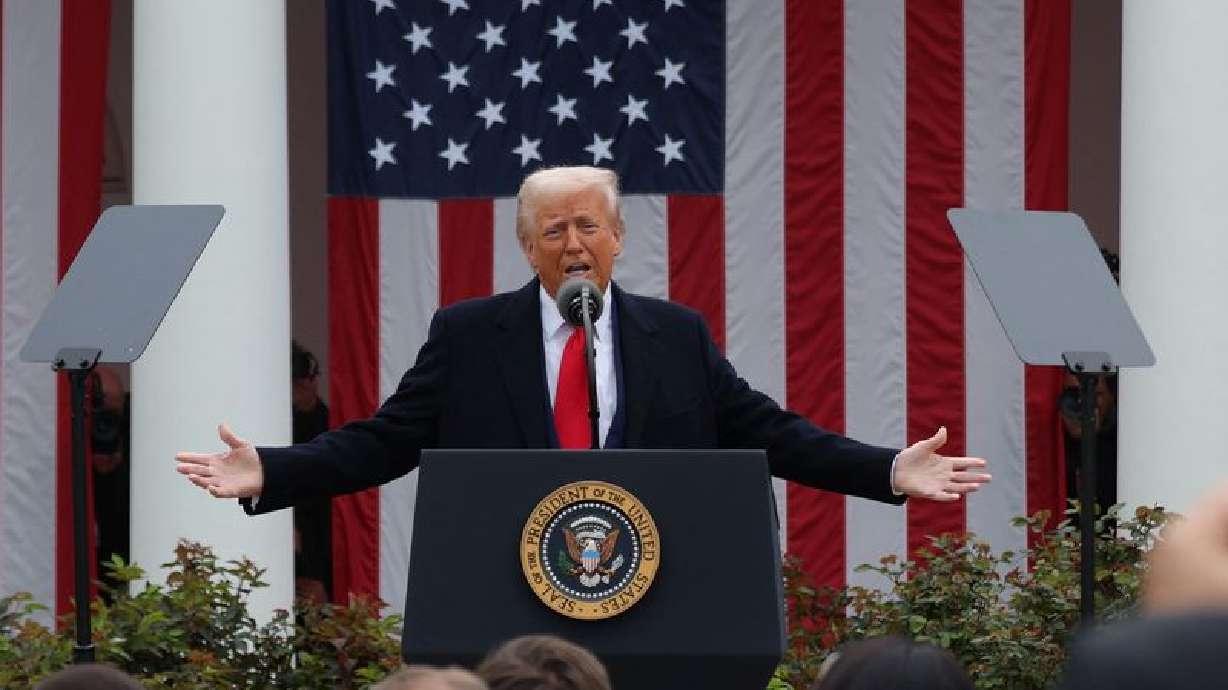On Wednesday, U.S. President Donald Trump introduced new sweeping tariffs, ranging from 10% to 49%, which he referred to as “reciprocal tariffs.” He explained that these measures were a response to what he claimed were unfair trade practices by other nations against the U.S. for decades.
Trump positioned the tariffs as a means to reclaim economic fairness and ensure that jobs and factories would return to the U.S., portraying the issue as not just economic, but a matter of national security. This announcement sent shockwaves through global markets, with U.S. stock futures dropping and oil prices plummeting.
In response to Trump’s tariff announcement, several key trading partners expressed concerns but also showed a desire to avoid a full-scale trade war. The United Kingdom’s Business Secretary, Jonathan Reynolds, emphasized that the U.S. remains the U.K.’s closest ally and that the country hoped to secure a trade deal to mitigate the impact of the tariffs.
Similarly, Italy’s Premier Giorgia Meloni condemned the new tariffs as detrimental and expressed efforts to negotiate with the U.S. to prevent a broader trade conflict that could weaken the West in favor of other global players.
Brazil, China, Australia, and New Zealand Express Concerns Over U.S. Tariff Measures
Brazil voiced its displeasure with the tariffs and threatened to take the case to the World Trade Organization (WTO). The Brazilian Congress responded by unanimously passing a bill that would allow the country to retaliate against nations imposing tariffs on its exports.
In Asia, countries like South Korea and China vowed to take swift action to minimize the impact on their economies, particularly for industries such as automakers. China, in particular, indicated it would respond with countermeasures, as it had done in previous tariff disputes.

Several countries took issue with the logic behind Trump’s tariffs, particularly in the context of existing trade agreements. Australia’s Prime Minister, Anthony Albanese, stated that the U.S. tariffs on Australia were unjustified, especially considering the trade surplus the U.S. enjoys with Australia.
New Zealand also disagreed with the tariff structure, with its trade minister, Todd McClay, pointing out that New Zealand had a low tariff regime and had no intention of retaliating. The imposition of tariffs on Norfolk Island, an Australian territory with little to no trade with the U.S., was also met with confusion.
Mexico, Canada, EU Bracing for Tariffs Amid U.S. Trade Tensions and Retaliation Concerns
While Mexico and Canada were spared from the most recent tariffs due to their existing trade agreements with the U.S., they remained on edge as previously announced tariffs on auto imports were set to take effect. Mexican President Claudia Sheinbaum suggested that her government would wait for further details before taking action.
Canada, having already retaliated against U.S. tariffs, was preparing for further negotiations. The European Union also had its own set of retaliatory tariffs in place, particularly concerning steel and aluminum, and Trump had warned of even higher tariffs on European goods if tensions continued.
While Trump framed the tariffs as necessary for protecting U.S. interests, analysts argued that an all-out trade war would be detrimental to both the U.S. and its trading partners. Many expressed that European countries, despite the provocative tariffs, would be better off withholding strong retaliatory actions.
They noted that the EU depended more on exports to the U.S. than the reverse. Some experts believed that Trump’s approach, driven by forceful tactics, might prompt negotiations, but it also posed significant risks to international trade stability, with the potential for long-term economic damage.


